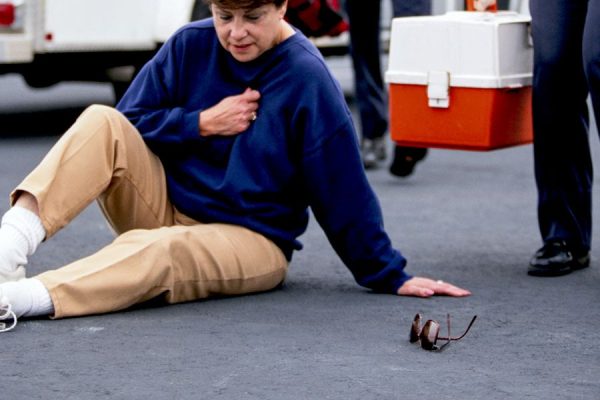Premises liability is a legal concept that typically comes into play in personal injury cases in which the injury was caused by some type of unsafe or defective condition on someone’s property. The most common cases we see are “slip and fall” accidents. Whether the injury is from slipping on grapes in a grocery store, falling from stepping in wet cement, or tripping on an item left on the floor in a store, these cases have become very difficult to win. Why? Because the law favors property owners in these types of situations.
Most personal injury cases are based on negligence, and premises liability cases are no exception. Many people believe that if they were injured on someone else’s property, the property owner is automatically liable. Simply because an injury occurs on someone’s property does not mean that the property owner is to blame. Further, even if a property is in an unsafe condition, it does not automatically mean that the property owner can be held negligent for injuries suffered on the property.
In order to win a slip and fall case, the injured person must prove that the property owner failed to use reasonable care in connection with the property. The plaintiff must prove that: (1) the owner was on notice of a dangerous or defective condition; and (2) that the owner failed to remedy the situation or to warn of the danger.
Insurance companies have used this requirement of “notice” to avoid paying premises liability claims. In fact, I have yet to see a case where an insurance company accepted liability for such an accident. In order to prove that the property owner was on notice, the plaintiff must present evidence that the owner knew of the condition, but did nothing about it. It is often difficult to locate any such evidence, absent an admission from the owner or an employee.
Ohio courts have also held that a property owner is not liable for an injury if the dangerous condition was “open and obvious.” This means that if the dangerous condition is considered one which the typical person would see in advance, the property owner will not be liable for the injury. Insurance companies often use the “open and obvious” defense to deny liability on claims even where the dangerous condition was not necessarily easy to see (e.g., a hole in the ground or a spill on the floor).
While premises liability cases are difficult to win, they are not impossible. That said, there must be some reasonable basis to argue that the condition that caused the injury was not easy to see, that the owner knew about it, and that the owner did nothing to remedy the situation.

